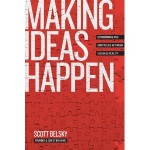The following is a guest post by Alan Hicks.
Before the Protestant Reformation only clergy and highly educated people had access to the Scriptures because they were written in Latin, a language that most people at that time no longer understood. Therefore the masses depended on the Roman Catholic Church (really the only church around) to interpret the Scriptures for them, and to tell them what the Scriptures taught. As you might imagine, this made it very difficult for anyone to oppose church teaching because they did not have a Bible that they could read and argue from. So if the church said that you must pray to Mary, the mother of Jesus, then that is what you did.
Shaking Things Up
But at the beginning of the 16th century a German monk named Martin Luther noticed several church teachings conflicted with the teachings of the Bible. Though he was not the first to notice, he was the first to have the help of a printing press to circulate his writings.
Luther began to write against several key church teachings and to translate the Bible into German, a language that people understood. Others followed his lead as well. The battle cry of the Reformation became “sola scriptura,” which is Latin for “scripture alone.” This meant that the Bible was the final authority over faith and practice, not church teaching. This also meant that each Christian had not only the right, but the obligation, to read and interpret the Bible for themselves.
Who Has the Last Word?
But this posed a problem for post-Reformation Christians. If two people come to different conclusions regarding the meaning of a text, how do we know who is right? There was no longer a higher ecclesiastical body to force people to believe certain teachings.
Luther witnessed this very problem in his own lifetime. After he put the Bible into the hands of the populace, many different groups arose which claimed to have the “true” interpretation of the Bible, yet their interpretations were all different. Historian Stephen Tomkins comments on page 145 of his book A Short History of Christianity that, “they were up against the fundamental problem of Protestantism: they agreed that the Bible had the final say over their beliefs, but they could not agree about what the Bible did say.”
We are still up against the same problem today. The same groups which formed at the time of the Reformation are still around and still cannot agree with each other. There are even cults such as the Jehovah’s Witnesses and the Mormons which base their teachings on the same Bible that we use. So how can we ever hope to arrive at a correct reading of the Bible when there is so much disagreement?
The answer is that we must recognize certain rules of interpretation if we hope to correctly understand our Bibles. These rules of interpretation are called “hermeneutics.” In another post, I’ll discuss five rules of hermeneutics.
Alan is a M.Div. graduate of Reformed Theological Seminary in Charlotte, NC. He and his wife attend Grace Presbyterian (PCA) in Kernersville, NC. You can follow him on twitter. He’s an awesome dude and a good friend of mine.
